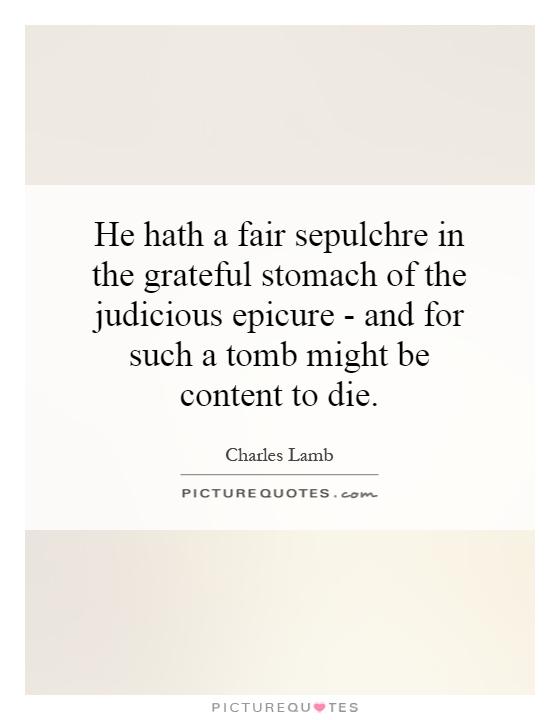He hath a fair sepulchre in the grateful stomach of the judicious epicure - and for such a tomb might be content to die

He hath a fair sepulchre in the grateful stomach of the judicious epicure - and for such a tomb might be content to die
Charles Lamb, the renowned English essayist and poet, was known for his wit, humor, and love of good food. In his essay "A Dissertation upon Roast Pig," Lamb explores the joys of indulging in a perfectly cooked piece of pork, highlighting the pleasure that can be found in the simple act of eating. The quote "He hath a fair sepulchre in the grateful stomach of the judicious epicure - and for such a tomb might be content to die" perfectly encapsulates Lamb's attitude towards food and the role it plays in his life.For Lamb, food is not just sustenance, but a source of pleasure and comfort. He sees the act of eating as a form of art, with the judicious epicure as the connoisseur who appreciates and savors every bite. In this sense, the stomach of the epicure becomes a fair sepulchre, a beautiful resting place for the food that brings him joy and satisfaction.
Lamb's love of food is evident throughout his writing, as he often uses food as a metaphor for life and human experience. In "A Dissertation upon Roast Pig," he tells the story of a Chinese boy who accidentally discovers the deliciousness of roasted pork, leading to a culinary revolution in his village. The boy's passion for food mirrors Lamb's own appreciation for the pleasures of the table, and his willingness to die content in the stomach of the judicious epicure speaks to the profound satisfaction that can be found in a well-prepared meal.












 Friendship Quotes
Friendship Quotes Love Quotes
Love Quotes Life Quotes
Life Quotes Funny Quotes
Funny Quotes Motivational Quotes
Motivational Quotes Inspirational Quotes
Inspirational Quotes